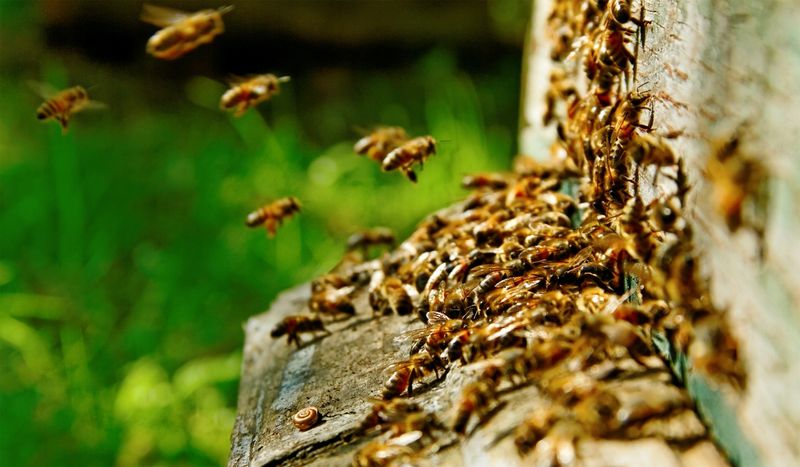Legislation provides tax breaks to Rhode Island logging operations
By Rob Smith / ecoRI News staff
Will a small tax break for forestry vehicles
lead to greater clear-cutting of Rhode Island’s forestland, or will it boost a
flagging industry?
It’s been a minor, but lasting debate in the General
Assembly this year. Legislation (H5098/S0679) introduced by Rep. Megan Cotter, D-Exeter, in the
House and Sen. Jacob Bissaillon, D-Providence, in the Senate would provide
foresters and logging companies with a tax break on their vehicle registration,
similar to an existing break already given to the state’s agricultural sector.
Forestry businesses reporting gross revenue less than $2.5
million would be eligible, receiving a special license plate to affix to
company vehicles used actively in forestry operations. Both pieces of
legislation were approved by both chambers on Wednesday.
The tax break given to forestry businesses is far narrower
than what was originally proposed, at least in one chamber. A previous draft of the Senate bill, for example,
expanded the tax break to forestry product operations equipment, parts, and
other related industrial goods used by forestry businesses.
Supporters say the legislation would provide relief to a
small industry of micro-businesses and large landowners, such as the Department
of Environmental Management, who contract out logging work to help manage
woodlands.
“If we want our forests to survive the next hundred years,
we need to support the people who are willing to do that work now,” Cotter said
during a House floor debate Wednesday. “We do not protect our forests by
ignoring it, we protect our forests by actively managing it and that means
protecting the people who do the work.”
Some environmental groups expressed concerns about any tax
breaks to boost the state’s logging industry. In a letter submitted to
lawmakers about both parity bills, some groups protested equating logging to
agriculture, and warned lawmakers it could mean destroying Rhode Island’s
biodiversity, expand invasive species populations, and damage soil health.
“Our native forests are not crops on a farm,” the letter read. “They are not tree plantations. Forests
are shaped by nature, self-perpetuating, and able to survive without human
interference. Logging natural forests is not farming.
“We are not opposed to logging taking place in areas that
are not old growth forests, natural heritage areas, or other rare forest
habitats,” the letter continued. “Nor are we opposed to logging planted tree
farms. However, taxpayers shouldn’t have to pay more taxes so the timber
industry pays less in taxes.”
The letter was signed by the Old Growth Tree Society of
Rhode Island, the Woonasquatucket River Watershed Council, the Rhode Island
Nursery and Landscape Association, and the North Smithfield and Cumberland Land
trusts, among others.
Despite its Ocean State moniker, Rhode Island contains vast
tracts of forest. The latest Forest Action Plan completed by DEM estimated Rhode
Island has some 366,958 acres of forest, about 53% of the total land area of
the state. Most of it is considered second-growth forest, and almost all of it,
96% is classified as timberland, meaning it exceeds the minimum level for
productivity and can be harvested.
Much of the forestland in Rhode Island, about 70%, is held
in private hands. DEM only owns and manages some 57,000 acres of state-owned
forests. Nearly 60% of all woodlands in the state is classified as core forest,
unbroken, unfragmented areas greater than 250 acres in size.
While the numbers sound, and are big and impressive,
compared to other New England states, Rhode Island’s forests, and by extension,
the logging industry, remains a dwarf among giants. The state only has about 90
jobs in the forestry and logging sector, and as of 2019 gross annual sales were
only $11.6 million.
That’s not to say Rhode Island forests aren’t under threat.
A key point of controversy over the past decade in many municipalities across
the state has been the clear-cutting of forestland for ground-mounted solar
installations. A 2024 study by the Narragansett Bay Estuary Program
estimated the state had lost nearly 4,000 acres of undeveloped forestland to
solar development.
There is some protection for state forests, at least from
solar development. In 2023 lawmakers passed protections that prohibited core
forest areas, which typically carry stronger local protections as well, from
being axed to build solar projects.
Meanwhile, supporters of the parity legislation, which
includes members from both parties, characterized opposition to the bills as
misinformation, and maintained on the floors Wednesday it would boost the
state’s smallest businesses.
Rep. Michael Chippendale, R-Foster, said the bill was hardly
going to attract new logging companies to start chopping down Rhode Island’s
forests.
“It would cost more to set the corporation up than you would
save under the tax break,” he said. “These are small businesses that are using
the byproduct of other businesses.”



















